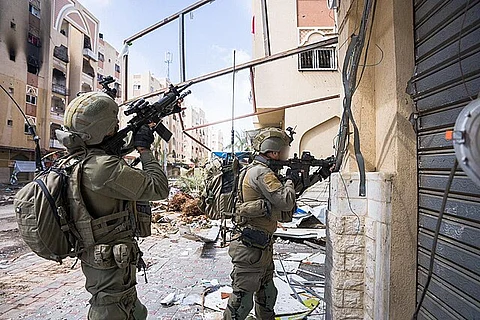

Israeli forces have escalated their military operations in Gaza, ordering the evacuation of approximately 50,000 residents from Rafah, a city in the southern region of the enclave. This move comes amid an ongoing aerial bombardment that has resulted in significant civilian casualties, including at least 65 deaths, many of whom are women and children. The strikes, which coincided with the first day of Eid al-Fitr, a time of celebration and reflection for Muslims, have further deepened the humanitarian crisis in Gaza.
The Israeli military has targeted multiple sites in Rafah, a city which has been a focal point in the ongoing conflict. Civilians have fled their homes in search of safety, but many have been left without shelter or basic necessities. The offensive has also led to widespread destruction of infrastructure, including hospitals, schools, and markets, compounding the difficulties faced by those still trapped in the conflict zone.
International organizations, including the United Nations, have condemned the attacks, calling for an immediate ceasefire and unrestricted access for humanitarian aid. The situation has drawn growing concern from global leaders, with many urging Israel to halt its military operations and engage in negotiations for peace. Despite these calls, Israel has maintained that its actions are necessary to protect its citizens from Hamas attacks, a stance that has deepened divisions within the international community.
As the conflict continues, the civilian population of Gaza remains caught in the crossfire, facing immense suffering and hardship. The need for immediate international intervention is critical to prevent further loss of life and to begin the long process of rebuilding and reconciliation in the region.